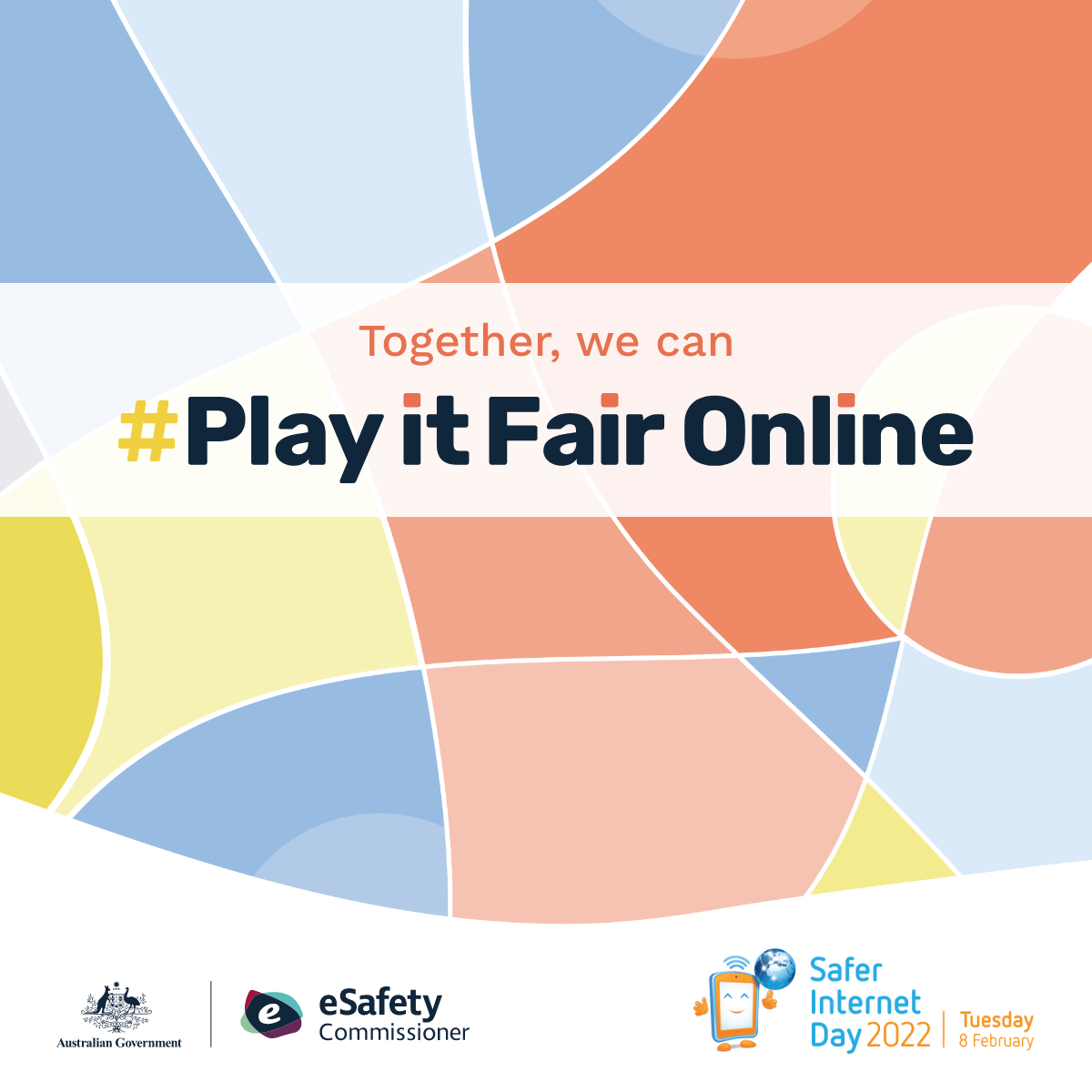March 2022
Guidance and resources for online safety in sport

Sport is part of Australian life. Whether it’s training sessions, matches or tournaments, every day we see sport being played at fields, pools and courts across the country.
While sport for the most part is a physical event, it’s important to recognise it almost always has an online dimension. Coaches use videos for training, team managers use apps to organise players, squads are on group chats, clubs manage member data online and players share photos on social media. We are regularly online as part of our sporting life.
Just as rules, safety and respect are needed ‘at the game’ – they are important online too.
Issues occur in areas such as privacy, security, image sharing, bullying, harassment and discrimination, and can have a serious impact on individuals and the sport itself.
What can we do to make sport safe on and off the field?
1. The baseline - uphold basic values
Whether you’re a coach, player, volunteer, parent or supporter, uphold some simple online values:
- Be respectful – there’s no place for abuse, hate or discrimination online
- Be kind – treat people with kindness, patience and understanding
- Be prepared to ask for help – reach out if something goes wrong online
- Be resilient – don’t let a bad experience online put you off
- Be safe – avoid situations that pose a risk or danger to yourself or others online
- Be responsible – think how your actions could affect other people
- Be an upstander – if you can do it safely, speak up and say something.
Sport organisations and leaders can share and promote these values to encourage online safety.
2. Manage your online life
Take proactive steps to manage your online presence and safety:
- Use devices safely – make the most of the security features and build good habits
- Protect personal information – including any information that enables you to be identified
- Think about your digital reputation – what you say and do online has a big influence on how people perceive you
- Get informed – if you are new to digital technology, or need specific advice, get some help.
Follow the practical eSafety tips on each of these topics and more on the eSafety website.
3. Be aware of online issues
Some of the serious issues people can encounter online include:
- Cyberbullying – when someone uses the internet to be mean to a child or young person so they feel bad or upset
- Unwanted or unsafe contact – any type of online communication that makes you feel uncomfortable or unsafe; it can be with a stranger or someone you know
- Adult cyber abuse – when someone sends seriously harmful content to a person who is 18 or older, or posts or shares harmful content about them, using an online or electronic service or platform
- Image-based abuse – when someone shares, or threatens to share, an intimate photo or video online of you without your consent.
The eSafety website provides a detailed overview of these key issues, including what you can do and how to report to us.
4. Handle negative online experiences
Anyone can have a negative online experience, ranging from relatively low impact issues like mild criticism to more damaging experiences such as cyberbullying. If it happens to you, there are a number of ways you can respond.
Contact your sport
Reach out to your sport organisation for guidance and support, or to report matters.
Collect evidence
It is important that you take screenshots of what's happening and record the account details such as the username or account URL. Use the eSafety guide to collecting evidence.
Report and block online abuse
Abusive posts and comments are never acceptable. If you are being harassed, intimidated, humiliated or threatened, report it to the site where it is happening and block or mute the person doing it. The eSafety guide provides help on how to do this. If the platform does not help you, report serious online abuse to eSafety.
Intimate images shared without consent
If your intimate images have been shared or threatened to be shared without your consent (image-based abuse) contact eSafety for help.
Pause and reflect
Give yourself space and time so that you respond rather than react. Don’t deplete your emotional strength and energy by giving negative online experiences more attention than they deserve.
Surround yourself with supportive people
You don’t need to handle any negative online experiences on your own. Talk with family, friends, peers and your sport. Consider professional support from a counselling service if needed.
eSafety resources
Australia’s eSafety Commissioner helps create safe and more positive online experiences for all Australians. Go to the eSafety website for practical resources:
eSafety is here to help us all enjoy sport safely. Take a look at all the great eSafety resources on the website today and follow eSafety on Facebook, Twitter and LinkedIn.

